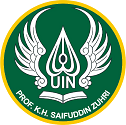Strategies and Innovations in the Management of ZISWAF Funds through Digital Platforms for Sustainable Community Development
DOI:
https://doi.org/10.24090/icip.v1i1.305Keywords:
zakat, infaq, shadaqah, waqf, digital platform, suistinable communityAbstract
This research aims to analyze the management of ZISWAF (zakat, infaq, shadaqah, and waqf) funds in Indonesia, to analyze the opportunities and challenges of managing zakat, infaq, shadaqah, and waqf funds in the digital era, and describe the concept of innovation in developing digital platforms for the management of zakat, infaq, shadaqah, and waqf funds for sustainable community development. In recent years, digital technology advancements have had a significant impact on various aspects of life, including the management of zakat, infaq, shadaqah, and waqf funds. More and more charitable organizations and financial institutions are utilizing digital platforms to fundraise and manage zakat, infaq, shadaqah, and waqf funds. The management of zakat, infaq, shadaqah, and waqf funds plays a crucial role in efforts to achieve sustainable community development. Zakat, infaq, shadaqah, and waqf are pillars of Islamic philanthropy that have great potential to address issues of poverty, social inequality, and improve the welfare of the ummah. In the constantly evolving global context, innovation in fundraising is needed to address challenges and leverage existing opportunities. By utilizing digital technology and developing dedicated platforms, the potential of zakat, infaq, shadaqah, and waqf can be significantly enhanced, thereby making a greater impact on achieving sustainable community development. The development of digital platforms is also expected to bring many benefits such as increased accessibility, transparency, and broader community participation. This research is qualitative research that employs a library research approach and deductive analysis techniques. The data sources used in this research are secondary sources such as books, research journals, scientific articles, and official websites containing relevant information on topics such as zakat, infaq, shadaqah, waqf, and digital technology. The results of this research are expected to contribute to the development of effective and innovative digital platforms. The appropriate use of digital technology is expected to increase community participation in the allocation of zakat, infaq, shadaqah, and waqf funds, as well as strengthen transparency and accountability in the management of Islamic philanthropic funds. Furthermore, this research provides guidance and recommendations for further development in fundraising for sustainable community development in the digital era.








